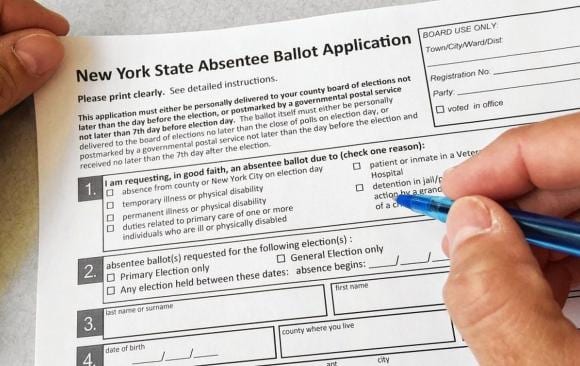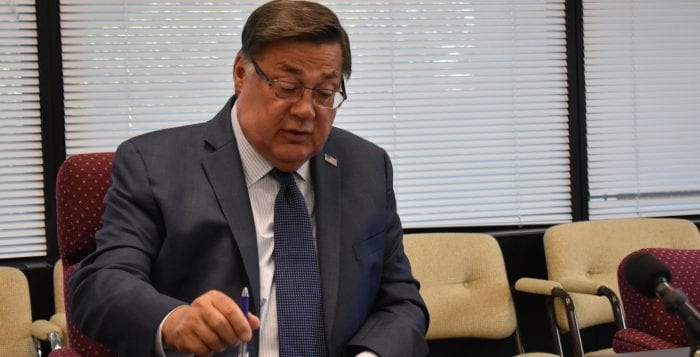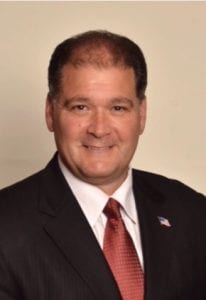By Nancy Marr
Because of New York State’s identity as the current U.S. “Epicenter” of the COVID-19 pandemic, Gov. Andrew Cuomo on March 7 issued Executive Order 2020, declaring a State disaster for the State of New York, which gives him the power to modify any statute, local law, ordinance, order, rule or regulation if necessary to assist or aid in coping with such disaster.
An Executive Order, issued on April 24, requires that every voter who is in active or inactive status and is eligible to vote in the primary elections on June 23 shall be sent an absentee ballot application with a postage paid return option.
Earlier, Gov. Cuomo had announced that he was cancelling the April 28 presidential primary and postponing it to June 23. Then on April 27 the NYS Board of Elections (BOE) canceled the June 23 presidential primary amid pandemic concerns, which means that Bernie Sanders will not appear on the ballot in the state and Joe Biden, the presumptive nominee, will get all the 274 pledged delegates.
Gov. Cuomo had added a provision to the state budget earlier this month that allowed the BOE to remove candidates from the ballot if they had dropped out of the race; if Biden were the only nominee left, the BOE could then cancel the election.
The election on June 23, 2020, thus will combine the state and congressional primaries (the special elections that were scheduled for June 23 will be postponed to the General Election on Nov. 3, 2020). In order to vote in a primary, you must have registered in the party holding the election by Feb. 14, 2020. To be sure that you are registered in a party, visit www.voterlookup.elections.ny.gov. To find out which primary candidates will be on your ballot, check www.Vote411.org.
Be sure to exercise your right to vote. When you receive the absentee ballot application (mailed if you are eligible to vote on June 23), complete it, checking the box for “temporary illness or disability,“ and return it in the postage paid envelope provided.
If you do not receive the application, and believe you are eligible to vote in the election, contact the BOE, but you can also obtain an application from your local post office, or go to the BOE website https://suffolkcountyny.gov/Departments/BOE to find an application that you can complete, copy, and return by mail or email. (The Governor has waived the requirement for a signature for this election.)
When the ballots are finalized, one will be mailed to each voter who has returned an application and is eligible to vote in a primary on June 23. Your completed ballot must be returned in the envelope provided no later than the close of polls on June 23 or postmarked no later than the day before the election.
Regarding future mail-in voting by absentee ballot: The New York State Legislature during the 2019 session passed legislation to remove the specific conditions needed for an absentee ballot. This no-excuse absentee ballot would make it easier to vote. Since it would be a constitutional change, however, it must be passed again by the next legislative session, and then submitted to the electorate in a referendum in 2021. If it passes, it will make permanent the no-excuse absentee ballot that Gov. Cuomo has provided temporarily.
Separately, State Senator Biaggi and Assemblymember Jacobson introduced a bill this year to amend the election law to define “illness” as ”the spread or potential spread of any communicable disease, at a time of declaration of a state of emergency …” This is still in committee, but, if passed, would make it possible to vote by absentee ballot in all elections held in the future during a state of emergency. Stay safe; make your voice heard.
Nancy Marr is first vice president of the League of Women Voters of Suffolk County, a nonprofit, nonpartisan organization that encourages the informed and active participation of citizens in government and influences public policy through education and advocacy. For more information, visit www.lwv-suffolkcounty.org or call 631-862-6860.


















